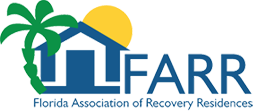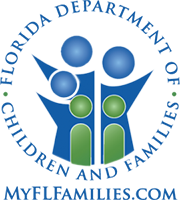Supporting a Family Member with Addiction
Watching a loved one struggling with addiction is heartbreaking and scary to endure. You may feel alone, frustrated, or scared for their well being. Addiction can challenge the unconditional love parents have for their children in ways they never imagined, however, it is important to remember that there are a wealth of resources available for both you and your family member. Finding a treatment center that incorporates and encourages family participation in their loved ones treatment will help mend the relationships that have suffered from the addict’s behaviors.
Recognize the Signs of Addiction
Determining if your loved one is using drugs or alcohol may be challenging because addiction can present differently in each individual. For some people, they can still function as they always have. They may be able to maintain employment and healthy relationships, however, most addicts have noticeable changes to their personality or appearance. While you may not like the behaviors your loved one is displaying currently, understand that they are not their addiction and they are capable and worthy of recovery. It is important to know what signs to watch out for, so you can act swiftly in getting your family member the help they need. Signs of addiction include:
- Lethargy
- Difficulty sleeping or lack of sleep
- Slurred speech or speaking quickly and incoherently
- Frequent nosebleeds or congestion without a cold
- Sores around the mouth
- Seizures
- Vomiting
- Smelling of smoke or alcohol
- Disregard for hygiene
- Flushed face
- Soot on hands or around mouth
- Needle marks on arms, legs, or between toes
- Poor coordination
- Never has money
- Stealing from friends or family members
- Isolating from family
- Legal troubles or job loss
- Mood swings
- Hyperactivity
- Reports feeling anxious or depressed
Find the Right Treatment Program
Recognizing that your loved one is struggling with addiction is the first step in a long road to recovery. Once you have determined that treatment is the best way to help them, you need to address your concerns with them. Prior to this conversation, consider what you would like to say to them and understand that they may be resistant to help at first. Be sure to do this when they are sober and in a place where they feel safe and supported. Most importantly, be empathetic and open minded, but firm in your concerns about their addiction.
Once your loved one is in agreement about receiving addiction treatment, finding the right treatment program is the next big step. When considering treatment centers, it is important to read reviews of the facility from several different sources so you can get feedback from people who have gone there. It may also be a good idea to find out how much you will be expected to pay after insurance so you can plan ahead financially. If possible, try to find a facility that has been certified by organizations, such as the Joint Commission, because that means they are held to a strict Code of Ethics and have proven they provide quality care.
Consider Family Therapy at The Source
At The Source Treatment Center, we understand the value that familial involvement has in a person’s recovery. Regardless of the level of care clients receive, family therapy plays a key role in treatment. After an initial adjustment period, communication with family is encouraged and family therapy will begin. Families will work with licensed counselors to help in the development of a treatment plan and will be met with compassion, understanding, and comfort. Families are also encouraged to attend AL ANON meetings to find a sense of community and additional support during this difficult time. For more information about family therapy at The Source, please call (800) 204-0418 or visit us online at www.thesourcetreatmentcenter.com.


 The Source quite frankly saved my life and got me back on track, never giving giving up on me. When you are thinking about and looking through all of the different places to go for treatment this is the one that should stand out from the rest.
The Source quite frankly saved my life and got me back on track, never giving giving up on me. When you are thinking about and looking through all of the different places to go for treatment this is the one that should stand out from the rest.




























